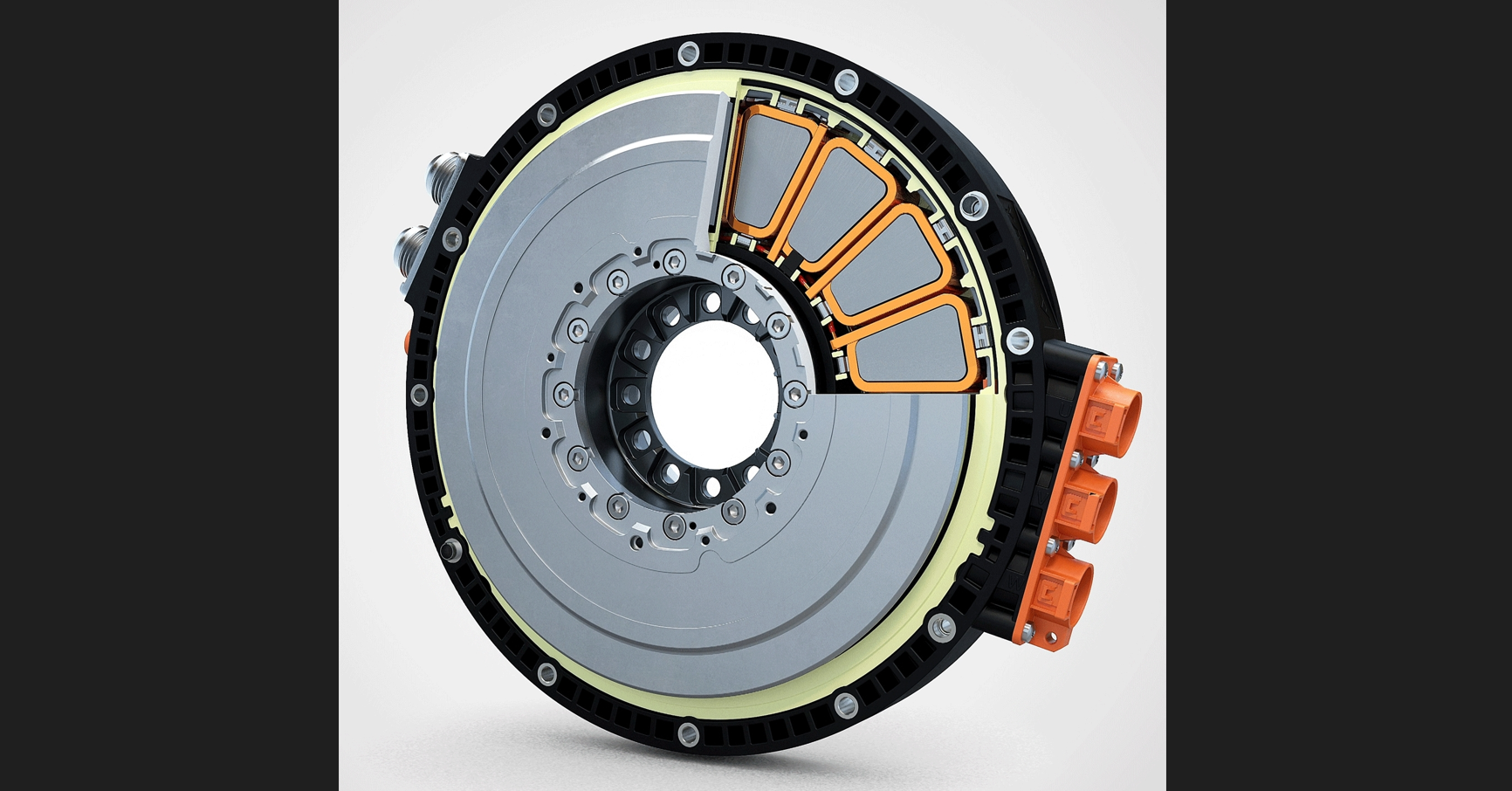
Evolito is developing electric motors for aircraft propulsion using high-power-density axial-flux technology developed for high-performance cars.
Spun out of automotive electric motor developer Yasa before it was acquired by Mercedes-Benz in 2021, UK startup Evolito is preparing to deliver its first aerospace-grade motors to customers in the first half of 2023 for early testing.
Oxford, England-based Evolito was formed in July 2021 to apply Yasa’s high-performance, low-weight, axial-flux motor technology to aviation applications. The startup is targeting two market sectors initially: general aviation aircraft up to 19 seats in the near term and electric vertical takeoff and landing (eVTOL) aircraft in the longer term, new CEO Chris Harris told Aviation Week.
The yokeless and segmented axial-flux motor architecture developed by Yasa is about one-third the weight of best-in-class radial-flux electric machines, Evolito says, significant weight savings that have even greater value in aerospace than in automotive.
The technology is also already in volume production. Yasa secured production contracts from Ferrari and Mercedes-AMG before being acquired by Mercedes-Benz in August 2021. Mercedes did not want the distraction of aerospace, so the spinout of Evolito was planned as part of the acquisition, Harris said.
After 10 years at Yasa, Harris stepped down as CEO in September to become CEO of Evolito. “Mercedes is a very good owner for Yasa. They’re just very focused on their EV [electric vehicle] strategy,” he said. “And so, having completed the transition, my plan was always to move across to Evolito.”
While early aviation applications such as the Rolls-Royce Accel speed-record-breaking electric aircraft and ZeroAvia’s Dornier 228 hydrogen-electric powertrain testbed use existing Yasa motors, Evolito is now adapting the technology to certified electric powertrains for aircraft.
In the general aviation market, electric and hybrid-electric aircraft up to 19 seats, Evolito is working with several customers, Harris said, and plans to deliver the first samples of its standalone motors and inverters in the first half of 2023 for early testing in iron bird and prototype aircraft. The company expects to have its first motors on the market by 2024-25, Harris said.
The startup has also received a UK government grant to develop an electric propulsion unit (EPU)–fully integrated motor, inverter/controller and thermal management–for the eVTOL market. “We’re working with a couple of customers already. That clearly has potential to be a much larger market, but it’s at an early stage in its maturity,” he said. “Next year we plan to have first prototypes for internal testing.”
The startup has had discussions with the UK Civil Aviation Authority on certification of its standalone electric motors, using the European Union Aviation Safety Agency (EASA) Special Condition SC E-19 for electric and hybrid propulsion. “With one of our products and one of our customers we need to start engaging formally with the certification authority on that journey,” Harris said.
In July 2022, Evolito acquired UK battery developer Electroflight, a move Harris said was an opportunity rather than planned. The companies worked together on the Accel high-speed electric aircraft project, Electroflight integrating Yasa’s motors and inverters with its battery system.
“It was very complimentary, both that battery design and manufacture capability as well as systems integration. We didn’t have any of that within Evolito,” he said. “They are just down the road from us. So we took that opportunity and acquired them in July and since then we’ve been working with them on a slightly different agenda.”
Electroflight previously moved from project to project. “We said no, we don’t want you to be an engineering services company. We want to invest in this to develop next-generation battery systems that we can offer, either separately or in conjunction with our motors and inverters to be able to offer a complete powertrain solution to customers.”
As CEO, Harris built Yasa’s investor base through multiple funding rounds. With Evolito, he took a different approach, looking for a few deep-pocketed investors that understood the business and would fund the company through multiple steps. The startup is backed by Swiss investment company B-Flexion and Oxford Scientific Enterprises, an early-stage investor partnered with the University of Oxford.



